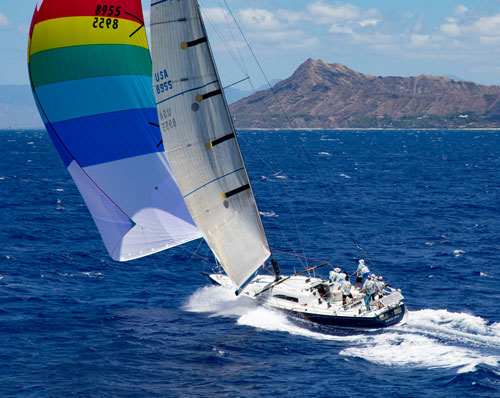
Will Google’s GenCast Transform Transpac Weather Routing?
In a recent post, Richard Spindler pointed to a story in the NYTimes describing how Google was introducing an AI agent that has created highly accurate 15-day weather forecasts. This got us wondering if using AI to do your weather routing would be considered outside assistance.
The story said GenCast, from the company’s DeepMind division, outperformed the world’s best predictions of deadly storms as well as everyday weather. At present, the technology is primarily aimed at providing earlier warning for severe weather events. The lead scientist on the project is quoted as saying, “I’m a little bit reluctant to say it, but it’s like we’ve made decades’ worth of improvements in one year. We’re seeing really, really rapid progress.” So what happens when GenCast starts providing optimal routing to the Expedition software?

Earlier this year the Transpac YC announced another weather-related decision — to use time-on-time Forecast Time Correction Factor (F-TCF) ratings calculated from the polar performance data from each boat’s ORR certificate and weather predictions available on the morning of each start. Using this system attempts to balance each boat’s chances of competing fairly against the entire fleet by reducing the variations encountered by boats across the multi-day starting sequence.
The rapid advancements in technologies are keeping race committees busy trying to figure out which tools will be helpful in keeping things fair and competitive. At some point, the rapid advancement of AI could possibly provide Starlinked boats much more precise routing information than onboard, or even shore-based, human weather routers. It doesn’t sound as if we’re there yet, but the rapid advancements will continue.

I think it’s premature to assign fixed handicaps/allowances for weather windows affecting multi-day starts, when the weather has been able to thwart even the best prognostications.